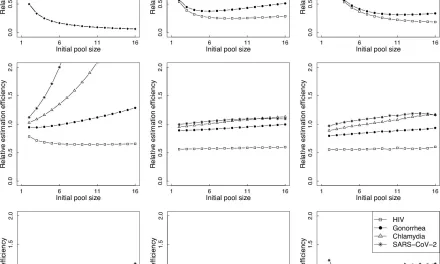A recent study in Zambia examining efforts to prevent early pregnancies among schoolgirls has found only limited success, highlighting the challenges in reducing adolescent pregnancies in low- and middle-income countries. The study, which is set to be published in eClinicalMedicine, suggests that while financial support and comprehensive sexuality education can have positive short-term effects, their benefits may be short-lived without more sustainable, long-term approaches.
In many low- and middle-income countries, early pregnancies are common and can pose significant health risks to both young mothers and their babies. Evidence suggests that girls who stay in school are less likely to experience early pregnancies, and financial support can be a valuable incentive to keep them in school. However, the new study from Zambia, involving a randomized trial in 157 rural schools, found only modest reductions in teenage pregnancies during the two-year intervention period. After the financial support ended, the impact largely faded.
The trial involved about 5,000 girls, with an average age of 14, who were just finishing primary school. The girls were divided into three groups: one received economic support alone, another received economic support along with sexuality education and community dialogue, and the third group served as a control. The study was conducted by researchers from the University of Zambia, University of Bergen, Chr. Michelsen Institute, and the Norwegian School of Economics.
Results showed that financial support, combined with education and community dialogue, did lead to more girls completing junior secondary school and a moderate reduction in births during the intervention. However, over the entire 4.5-year study period, the overall effect on preventing births before age 18 was limited. The researchers concluded that the temporary financial support, which ended before many of the girls completed secondary school, was insufficient to significantly impact early pregnancies long-term.
Professor Ingvild Sandøy from the University of Bergen in Norway pointed out that the findings align with previous research, showing that short-term financial support can be valuable but must be combined with other long-term strategies to meaningfully reduce teenage pregnancies. “This study reinforces the need for a multifaceted approach in low- and middle-income countries,” Sandøy noted, suggesting that strategies such as extending financial support until high school graduation and improving access to health services and contraceptives for youth could have more sustainable outcomes.
Professor Patrick Musonda from the University of Zambia highlighted a recent policy shift in Zambia: the government’s removal of secondary school fees, which he believes will help keep more girls in school and potentially reduce the number of early pregnancies.
The study’s findings underscore the importance of prolonged and holistic efforts to prevent adolescent pregnancies, especially in regions where poverty pressures and social factors continue to drive young girls out of school and into early motherhood. By making education more accessible and implementing broader health and social support systems, low- and middle-income countries like Zambia could make greater strides in supporting the well-being of young girls.












